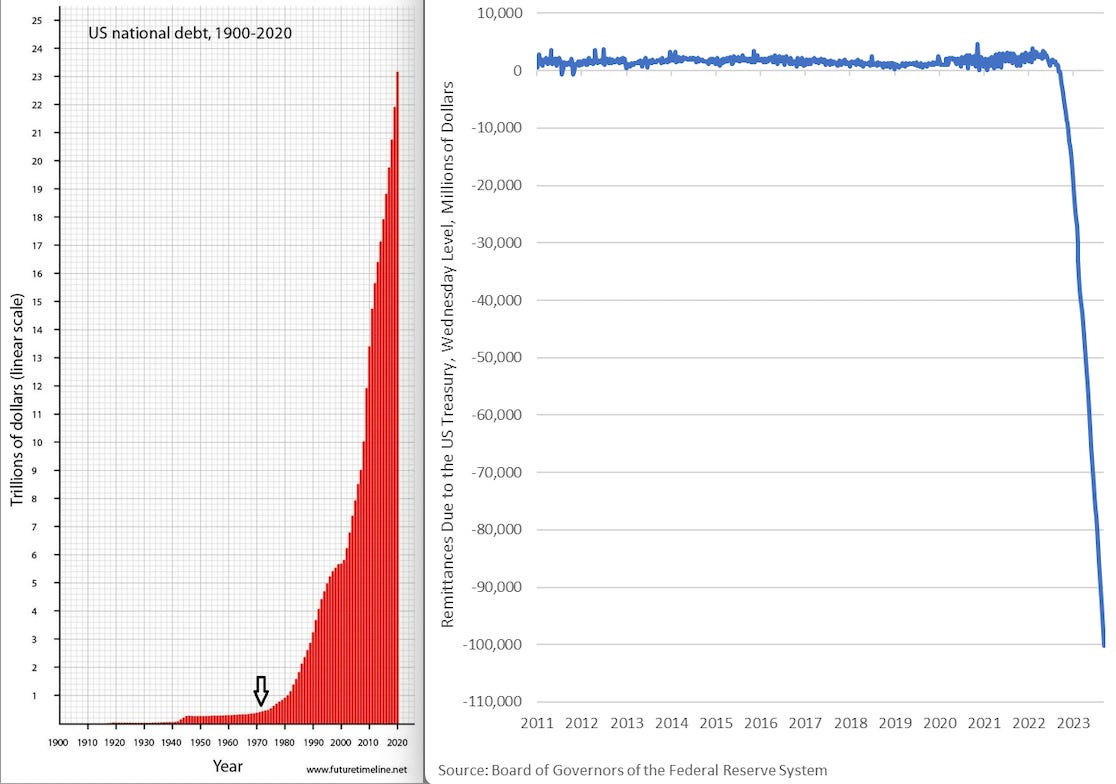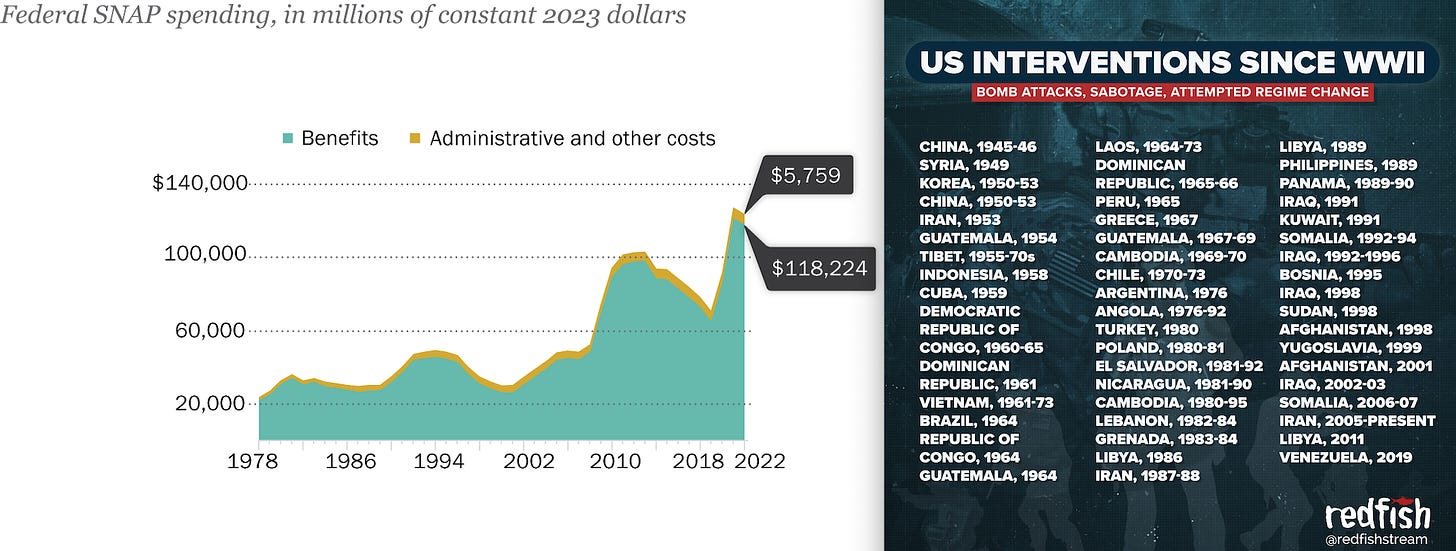

The good times are over folks
I was on financial journalist Charles Payne’s show recently talking about the progressive collapse of the once-great city of New York. Charles brought up parallels with Edward Gibbon's classic book on the Fall of Rome.
What led to this was New York announcing it would cut police funding to spend $12 billion on an apparently endless flood of migrants. Migrants who have been pulled in by open borders and generous benefits including being put up at luxury hotels at taxpayer expense, apparently forever.
Zooming out, late Rome is almost a perfect fit for New York. What was once the greatest engine of prosperity in the world, of history-changing innovation, a global center of culture, has now become a crumbling parody of itself.
A two-tier society with obscene wealth at the top fueled largely by parasitic finance. Set against a rapidly growing lower class living in progressive misery and insecurity.
All held up by a fading middle class who are fleeced to hold the whole thing together, paying obscene levels of taxes relative to what they earn and obeying a dizzying series of laws and mandates that only hit them: the rich buy their way out, the poor ignore laws.
What unites them is everybody knows it's unsustainable. That it's all a Ponzi bought with $33 trillion of debt -- almost $300,000 per household. And on its way to $50 trillion. None of these trillions will realistically be paid back. And sooner or later the suckers who buy that debt will make that bet.

Edward Gibbon was a well-known classicist writing around the time of the American Revolution. As a classicist, he knew the ancient theories of societal decline, including the most prominent, the “Kyklos” of Polybius (200-118 BC).
In that model, societies go through cycles of rise and decline. Polybius' formula is well-known today in the "Good times make weak Men" meme. And it has held true for millennia.
Working with this base, Gibbon wanted to understand exactly what those weak men did in order to destroy the greatest empire the world had ever seen. What were those?
So what drove the decline for Gibbon?
Today historians focus on the symptoms of Rome’s fall, the consequences: The moral decay, the economic decline, the fall in public safety, the multiplying plagues from dysfunctional public services, the hollowed-out military that ultimately invited barbarian invasions.
But we know these well -- in fact we're living through many of them. What's a lot more interesting is the why. Because that's how you stop it.
And the answer, again directly from Gibbon, is threefold: end the causes. Specifically, the economic mismanagement, political corruption, and endless foreign wars.
On economics, the key policies in the twilight of Rome were inflation through debasement of the currency -- alas, paper money hadn't yet been printed.
Paired with confiscatory taxes that wiped out commerce and small industry, while literally chasing landlords and tenants off the land. Many displaced or bankrupt producers become casual laborers in the cities subsisting on the rapidly growing public dole -- free bread back then, welfare and government benefits now, perhaps Universal Basic Income tomorrow.
Finally, predatory regulation, with multiplying rules bought by special interests that put remaining producers on borrowed time: running down their productive capital because the investment had already been made. But ceasing new investment, so that one by one Rome's economic base burned out like dying embers, leaving darkness.

As prosperity faded, the government reacted, not by pulling back, but by expanding at breakneck speed.
The bread and circuses multiplied to distract an angry populace.
Civil unrest multiplied as classes fought over a rapidly shrinking pie.
And, above all, foreign wars were used to refocus the population on an external enemy, to drain the cities of military-age men, and to reach for the occasional glory as Rome conquered yet another far off people at Pyhrric cost in blood and treasury.
Taken together, the empire bankrupted itself. Hollowed out its economy, and used the government and war to squander what was left.

The Fall of Rome is a sobering lesson for us today. Not only because the patterns are so obvious today, but because every fallen empire follows the same pattern: the Gupta of 6th century India, the Song Dynasty in China, the Spanish Empire, Victorian Britain.
I believe there is still time: It's what gets me up in the morning to fight another day. Millions are waking up to what's happening and resolving to reverse it. And it's important to remember we have reversed it before: the Renaissance, the Victorian Era itself, the Meiji Restoration have all reversed eras of decline, led by men and women of resolve.
We're still logging more losses than wins. But I believe the tide can be turned in time, that our predatory government can be leashed before it destroy us.
What's happening right now is deeply concerning. But we have every chance to reverse it, and we all owe it to future generations — even to current generations — to never give up.
Sign up to my free email list to get weekly posts on the economy and freedom. Choose the $5 option if you’d like to support the content — everything’s audience-supported.
Also check out the weekly podcast rounding up all the week’s videos in a single 30 minute podcast.
This was originally written on profstonge.com